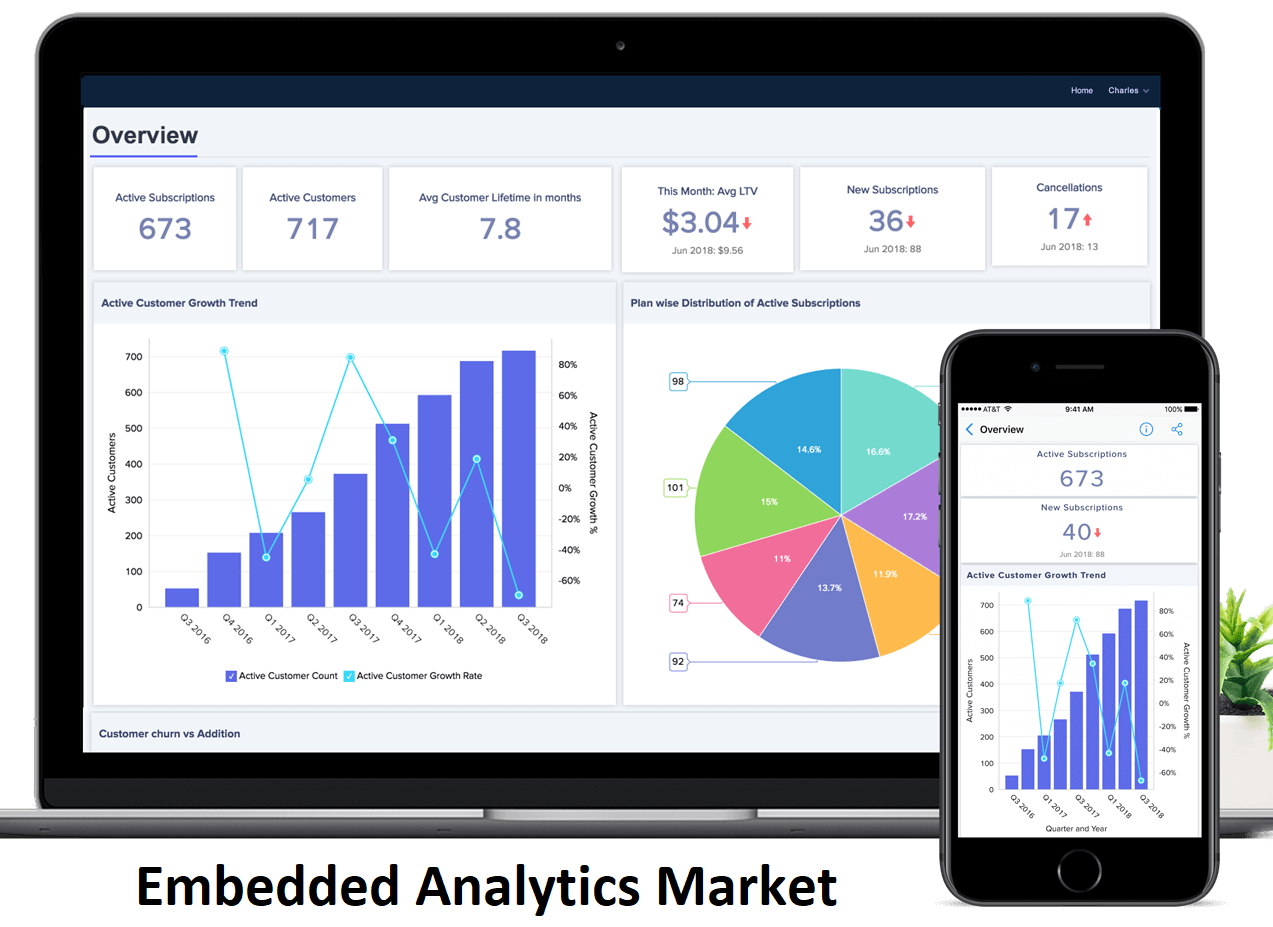Global Embedded Analytics Market is expected to grow at a significant CAGR of 14.76% in the upcoming period as the scope and its applications are rising enormously across the globe. Embedded analytics is the process of integration of business intelligence (BI) tools and skills into business software, including financial systems, customer relationship management (CRM), marketing automation, and enterprise resource planning (ERP). It is mainly entrenched with transactional process systems and applications.
The factors that are playing a major role in the growth of embedded analytics market are growing demand to integrate analytics with business applications, growth in data-driven organizations, and increasing acceptance of self-service analytics. However, the lack of skilled personnel’s and the management of data security and quality are the factors that may restrain overall market growth in the years to come. Embedded analytics market is segmented based on component, business function, deployment model, organization size, end-user, and region.
Services and software are the components that could be explored in embedded analytics in the forecast period. The services sector comprises professional services and managed services. The services sector accounted for the significant market share of embedded analytics and is estimated to lead the overall market in the years to come. Based on business function, human resources, IT, finance, marketing & sales, production, and others could classify embedded analytics in the forecast period.
On-demand and on-premises are the deployment model that could be explored in embedded analytics in the forecast period. On-demand (cloud-based) embedded analytics sector is estimated to grow at highest CAGR in the years to come. The reason behind the overall market growth could be its features like time-efficient and cost-efficient. Large enterprises and small & medium-sized enterprises (SMEs) are the organization size that could be explored in embedded analytics in the forecast period.

Get Sample Copy of this Report @
https://www.millioninsights.com/industry-reports/embedded-analytics-market/request-sample
The market may be categorized based on end-users like transportation and logistics, banking, financial services, and insurance (BFSI), media and entertainment, telecommunications and IT, media and entertainment, retail and consumer goods, energy and utilities, healthcare and life sciences, government, manufacturing, and others could be explored in the forecast period. Banking, financial services, and insurance (BFSI) sector accounted for the significant market share of embedded analytics and is estimated to continue its dominance in the years to come.
Globally, North America accounted for the substantial market share of embedded analytics and is estimated to lead the overall market in the years to come. The reason behind the overall market growth could be the presence of key manufacturers in this region, developed R&D sectors, and focus on innovations and enhanced technologies. The United States and Canada are the major consumers of embedded analytics in this region.
Instead, Europe and the Asia Pacific are also estimated to have a positive influence on the future growth. Europe is the second largest region with significant market share. However, Asia Pacific is estimated to grow at the highest CAGR in the forecast period. The aspects that may be ascribed to the growth comprise government initiatives like smart cities across the APAC countries and rising acceptance of smart technologies and internet of things.
The key players of embedded analytics market are Yellowfin International, Microsoft Corporation, OpenText, IBM, QlikTech International, SAP SE, Logi Analytics, SAS Institute, Sisense, Oracle Corporation, TIBCO Software, MicroStrategy Incorporated, Birst, and Tableau Software. These players are concentrating on inorganic growth to sustain themselves amidst fierce competition.
Browse Related Category Market Reports @
https://www.millioninsights.com/industry/computing-and-technology

 Log in with Facebook
Log in with Facebook 





